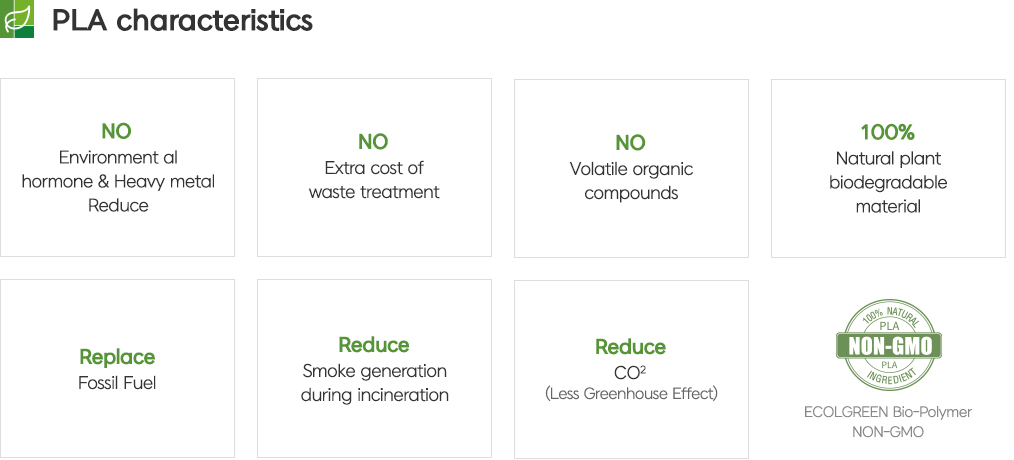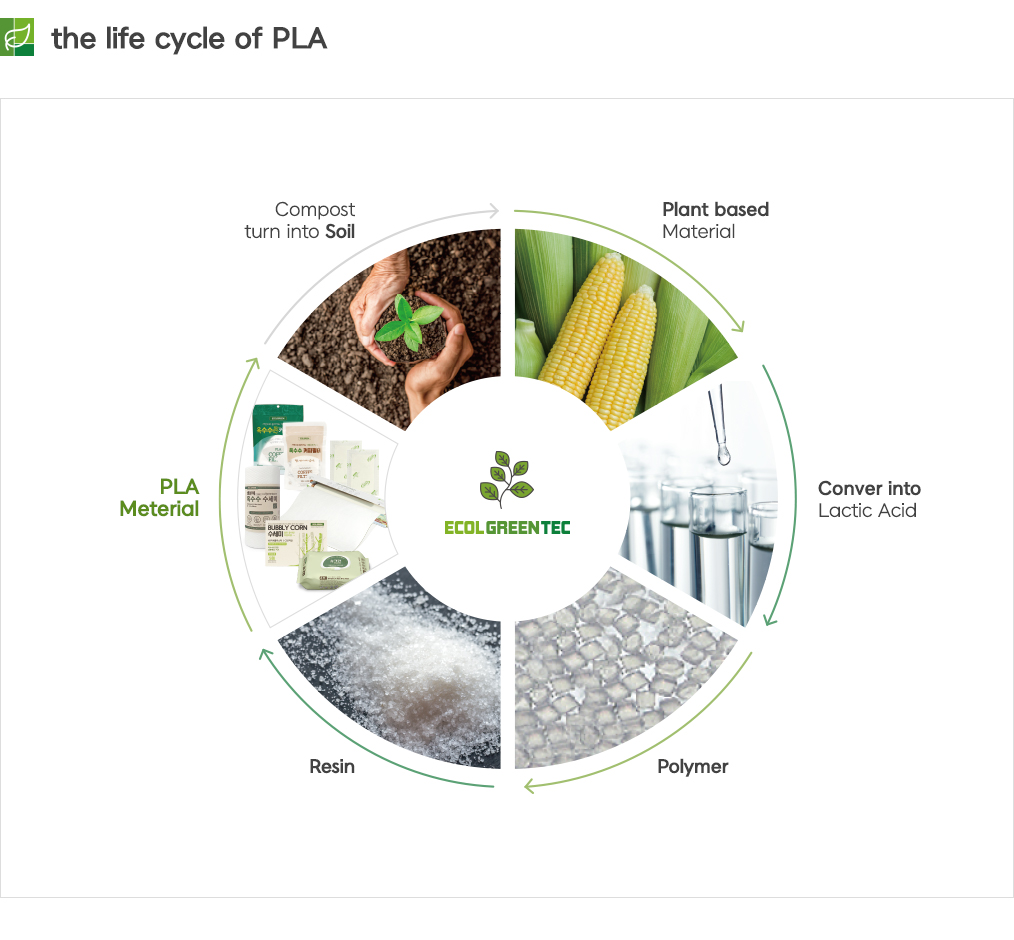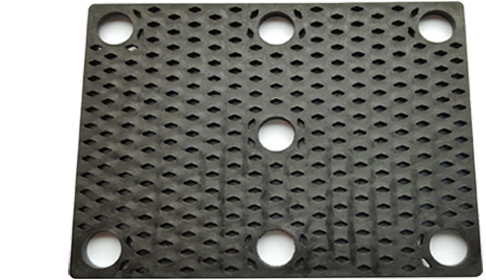![]()
EcolGreen Bio-Polymer(PLA) – Plant-derived biodegradable polymer
- 100% Plant-based Natural Material
- ▪ PLA ( Poly lactic Acid ) Composite material in which 12 kinds of eco-friendly raw materials are mixed with corn starch
- No harmful to Nature & Human
-
▪ No synthetic resin (PC, ABS, etc.), 100% biodegradable in nature
▪ No harmful substances such as biphenyl and dioxin
- Replaces
Chemical Material -
▪ A groundbreaking eco-friendly resin with universal material properties
▪ Dramatically expand the scope of application by overcoming the limitations of existing PLA (High heat resistance)
- Certified Technology
- ▪ Acquired domestic environmental mark and international certification for biodegradable resin


![]()
Semi-Conductive CNT Catalyst Electrode
What is CNT?
▪ "CNT” consists of molecules of 1 nanometer diameter (1 billionth meter), made of carbon atoms linked in hexagonal rings forming a long tubular shape
▪ It is a future-oriented new material with lightweight, flexibility, and absorbency
▪ Tube diameter determines metal and semiconductor properties.
Overview of Catalyst Electrode
▪ Elasticity 7 times that of steel, Tensile strength 100 times that of steel, Electrical conductivity 1,000 times that of copper wire, Thermal conductivity twice that of diamond.
▪ Increasing need for Using water electrolysis in various industrial application
▪ Catalyst, a Key element of electrode, made with precious metals (platinum, ruthenium oxide, rubidium oxide) limit the industry growth
▪ Studies are going on for the catalyst electrode process technology and design with the nano polymerization, non-metallic/no-metal materials
▪ Problem of electrolysis by Metal catalyst electrode: Instability (solvation of metal materials, catalytic activity, redox activity ↓), low durability, reduction of electrode life
![]()
Non-metallic Carbon Nanotube (CNT) Polymer Composite Material (Patent Pending)
When compounded with existing polymer components, the large specific surface area of CNT and apparent density of 0.02 - 0.05g/cc make it difficult to increase CNT content beyond a certain amount. Increasing CNT content weakens durability and makes products more fragile and reduces dispersion.
⇛ EcolGreenTec Co., Ltd. has developed and applied for patents on electrically conductive CNT composite materials with high CNT content, excellent dispersion, low basal resistance (surface resistance: 1/- or less), and superior durability.

Non-Metallic Carbon Nanotube (CNT) Application Areas
▪ High Electrical Conductivity: DC power cables, lightning grounding rods, sensors, electrolytic electrodes, etc.
▪ High Electromagnetic Interference Shielding and Static Prevention: Wire harness / EV cables, high-voltage transmission line covering, semiconductor IC tray, medical electromagnetic shielding materials, military electromagnetic shielding materials, etc.
▪ Heat Dissipation and Heating Materials: Motor cases, heating yarn, heating mats, heated vests, road de-icing heating wires, heating brushes, etc.



 032-813-5023
032-813-5023




